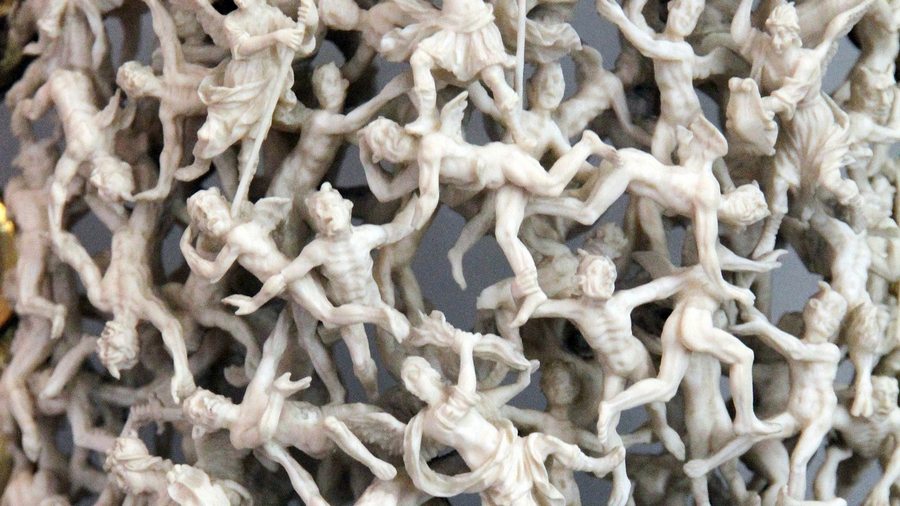This is to be done by one skilled in aims
appreciating the state of peace:
Be capable, upright, & straightforward,
easy to instruct, gentle, & not conceited,
content & easy to support,
with few duties, living lightly,
with peaceful faculties, astute,
modest, & no greed for supporters.
Do not do the slightest thing
that the observant would later censure.
Think: Happy, at rest,
may all beings be happy at heart.
Whatever beings there may be,
weak or strong, without exception,
long, large,
middling, short,
subtle, gross,
seen & unseen,
living near & far away,
born or seeking birth:
May all beings be happy at heart.
Let no one deceive another
or despise anyone anywhere,
or, through anger or resistance-perception,
wish for another to suffer.
As a mother would risk her life
to protect her child, her only child,
even so should one cultivate the heart limitlessly
with regard to all beings.
With goodwill for the entire cosmos,
cultivate the heart limitlessly:
above, below, & all around,
unobstructed, without hostility or hate.
Whether standing, walking,
sitting, or lying down,
as long as one has banished torpor,
one should be determined on this mindfulness.
This is called a Brahmā abiding
here.
Not taken with views,
but virtuous & consummate in vision,
having subdued greed for sensuality,
one never again
will lie in the womb.
Note: This sutta is also known as the Karaṇīyamettā Sutta. It can be found in two places in the canon: Khuddakapāṭha 9 and Sutta Nipāta 1.8.
Read this translation of Sn 1.8 Goodwill. dhammatalks.orgby Bhikkhu Ṭhanissaro on DhammaTalks.org. Or read a different translation on SuttaCentral.net, SuttaFriends.org, or AccessToInsight.org. Or listen on SC-Voice.net. Or explore the Pali on DigitalPaliReader.online.
Or read a translation in Deutsch, Lietuvių Kalba, Русский, ʻŌlelo Hawaiʻi, اَلْعَرَبِيَّةُ, Saarländisch, Català, Afrikaans, Čeština, Español, Suomi, Français, עִבְֿרִיתּ, Magyar, Bahasa Indonesia, Italiano, 日本語, မြန်မာဘာသာ, Nederlands, Norsk, Português, Română, සිංහල, Slovenščina, Svenska, தமிழ், Tiếng Việt, or 汉语. Learn how to find your language.





